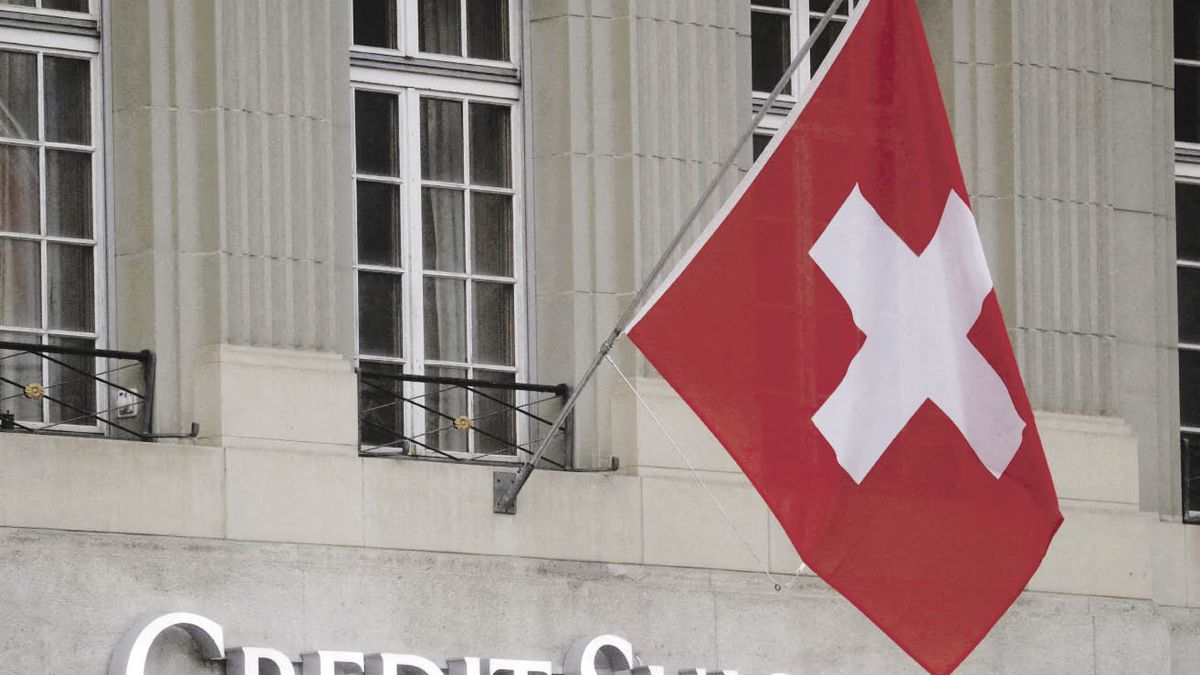Zurich – Credit Suisse (CS), the second largest bank in Switzerland, yesterday lost a quarter of its market value on the Zurich Stock Exchange, where its share plunged 24.94%, after its largest shareholder said it could not provide more liquidity.
The action came to lose 30% during the session and touched an all-time low. That generated significant falls in other markets, accentuating the turmoil caused by the recent bankruptcy of the US Silicon Valley Bank (SVB).
The Saudi National Bank (SNB), which owns 9.88% of Credit Suisse, said it would not buy any more shares in the Swiss bank for regulatory reasons. “We cannot because we would exceed 10%. It is a regulatory issue,” said SNB Chairman Ammar Al Khudairy.
Chief Executive Ulrich Koerner tried to calm nerves, stating that CS’s liquidity base remained strong and well above all regulatory requirements. He had stated at the beginning of the week that the entity’s liquidity coverage ratio stood at an average of 150% in the first quarter of this year.
Alert
Despite claims that the bankruptcy of US SVB would not cause contagion in Europe, market conditions were primed for Credit Suisse. This led one of the most powerful governments in the world to initiate reserved pressure for Switzerland to intervene in the bank. The Reuters agency, which spread this news, did not specify which country it is.
Meanwhile, the US Treasury Department said it is monitoring the situation and in consultation with its global counterparts. The European Central Bank, for its part, asked the banks under its surveillance for data on their true exposure to CS. In this framework, Exane analysts considered that the “most likely scenario” is that of a bailout by the Swiss National Bank and the financial regulator Finma, possibly with the help of one or more banks.
Observers called Credit Suisse a bank “too big to fail” but also “too big to bail out.”
“The sale of bank shares is massive, suggesting that some kind of decisive, game-changing action has to take place to reverse and stabilize the situation,” the Exane analysts said in their note.
Credit Suisse published its annual report for 2022 on Tuesday, which said the bank had identified “material weaknesses” in controls over financial reporting and had yet to curb customer departures.
scandals
Switzerland’s second-biggest bank is trying to recover from a series of scandals that have undermined investor and customer confidence. Customer exits in the fourth quarter amounted to more than 110 billion Swiss francs.
For example, the asset management branch of the CS staggered in 2021 due to the bankruptcy of the British financial firm Greensill, in which it had committed some 10,000 million dollars through four funds.
Four weeks later, the US fund Archegos could no longer inject money to cover its investments in derivatives, triggering a sell-off on Wall Street. Several large banks were affected, especially Credit Suisse, with some 5,000 million dollars.
In October 2021, the bank was embroiled in a corruption case in Mozambique related to loans to state-owned companies. For this reason, the American and British authorities imposed sanctions on the bank in the amount of 475 million dollars.
The loans, granted between 2013 and 2016, should have financed maritime surveillance, fishing and shipyard projects, but were partly diverted for bribes.
In December 2021, the Swiss tabloid Blick revealed that the bank’s president, Antonio Horta-Osorio, had broken quarantine regulations related to the covid-19 pandemic.
In February 2022, the Organized Crime and Corruption Reporting Project (OCCRP), a consortium of 47 media outlets, including Le Monde and The New York Times, published an investigation titled “Suisse secrets”. The same, based on account information from the 1940s to the late 2010s, revealed that the bank housed funds from clients involved in criminal acts and corruption.
In October 2022, the bank settled US litigation dating back to the 2008 financial crisis over mortgage-backed securities, settling in exchange for a payment of $495 million.
Likewise, in France, it agreed to pay 238 million euros to avoid being prosecuted for illegal prospecting of clients and aggravated tax fraud between 2005 and 2012.
Source: Ambito




